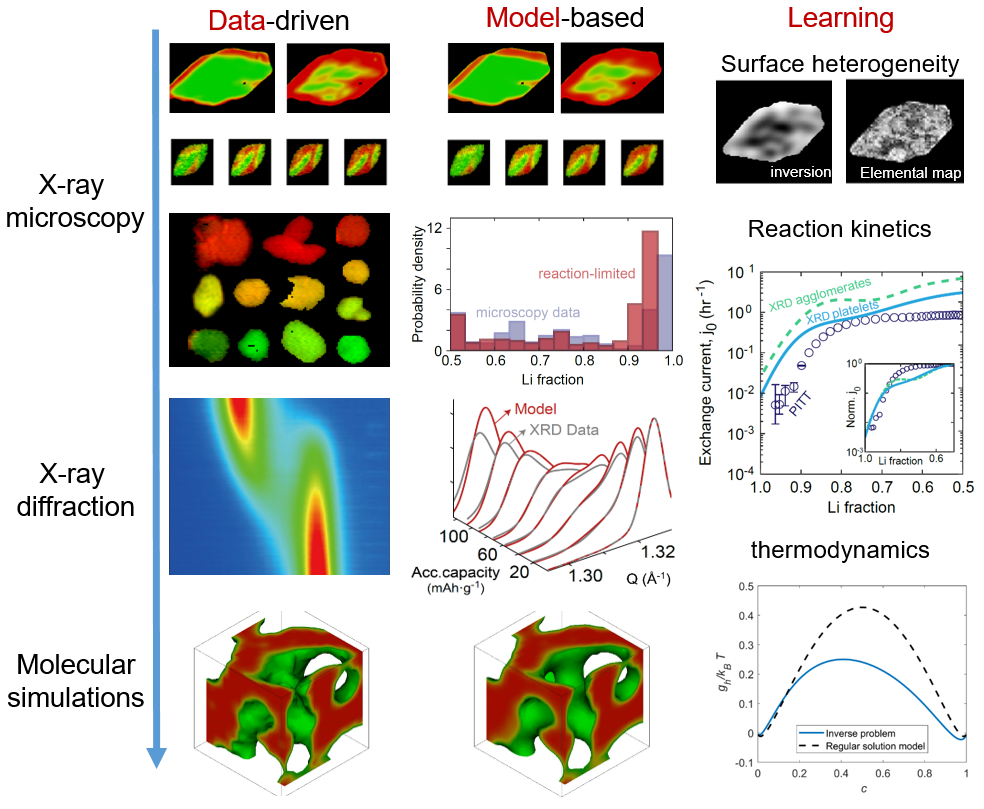2020 Virtual AIChE Annual Meeting
(3m) Data-Driven Modeling in Chemical Engineering
Author
Examples include 1) extracting unknown functional forms of reaction kinetics and free energy, surface kinetic map and chemo-mechanical coupling from images of lithium iron phosphate (LFP) particles, 2) identifying the role of autocatalytic reaction kinetics in the phase behavior of a transition metal oxide (NMC) and its quantification using a combination of X-ray diffraction, microscopy and electrochemistry data, and 3) learning the concentration-dependent free energy and diffusivity from molecular simulations of phase separation via the Cahn-Hilliard equation. All examples above achieved quantitative matching between data and models and trained models are predictive on test data. The methods can potentially be used to discover quantitative models for complex systems such as soft matter, energy materials, biology that are central to chemical engineering applications.
Research Interests
Applied mathematics, modeling and computation, data analytics, energy
Teaching Interests
Numerical methods, electrochemistry, transport phenomena
References
[1] Zhao, H. & Bazant, M. Z. Population dynamics of driven autocatalytic reactive mixtures. Physical Review E 100, 012144 (2019).
[2] Zhao, H., Storey, B. D., Braatz, R. D. & Bazant, M. Z. Learning the Physics of Pattern Formation from Images. Physical Review Letters 124, 060201 (2020).
[3] Park, J., Zhao, H., Kang, S. D., Lim, K., Chen, C., Yu, Y., Braatz, R. D., Shapiro, D. A., Hong, J., Toney, M. F., Bazant, M. Z., Chueh, W. C. Fictitious Phase Separation in Li Layered Oxides Driven by Electro-Autocatalysis, submitted
